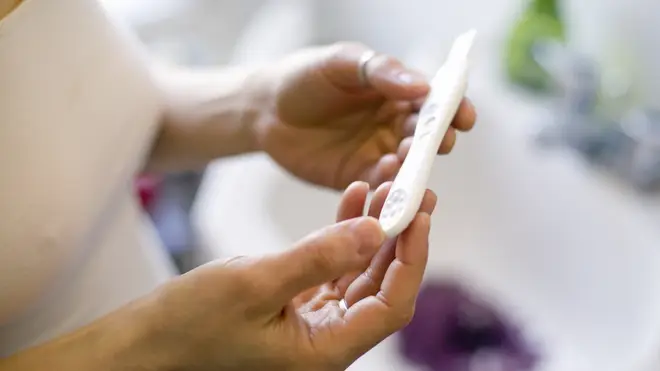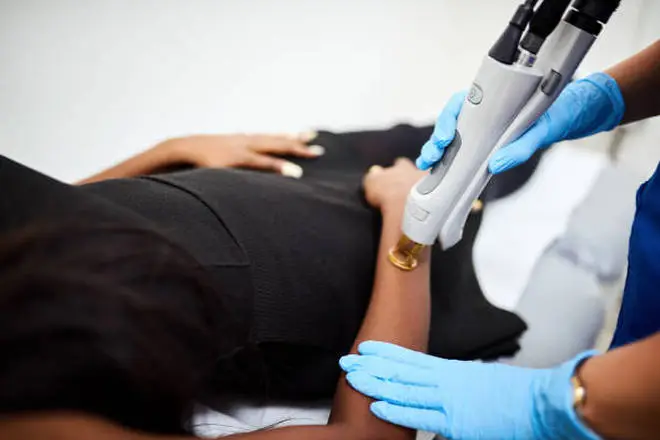6 things you need to know about polycystic ovary syndrome
4 December 2020, 14:45 | Updated: 4 December 2020, 14:57

What you need to know about Polycystic Ovary Syndrome symptoms, diagnosis and treatment.
Polycystic ovary syndrome (known as PCOS) is a condition that affects how a woman’s ovaries work.
It’s one of the most common hormone disorders and can affect your periods, fertility and aspects of your appearance as well.
But while millions of people across the world suffer with PCOS, a lot of us don’t actually know very much about it.
So, we’ve spoken to some experts to get the facts on polycystic ovary syndrome.
It’s more common than you might think
PCOS can affect between two and 26 women in every 100 and can run in families, leading gynaecologist and obstetrician Dr Ellie Rayner tells us.

You have to have at least two of the following three features to be diagnosed with PCOS: irregular periods, higher levels of male hormones and polycystic ovaries.
Polycystic ovaries are enlarged ovaries that have more fluid-filled sacs surrounding the eggs.
Having polycystic ovaries doesn’t necessarily mean you have PCOS, as you also need at least one of the other two features.
More confusingly, not everyone with PCOS will get these cysts either.
Read More: 8 things you should know before having laser hair removal
Symptoms are very different for everyone
The symptoms of PCOS vary dramatically by person, with many women not realising they suffer at all.
But Dr Rayner points out the most common factors include irregular periods, rapidly gaining weight, oily skin or acne, thinning of your hair or losing hair from the head.

Women trying to fall pregnant may also face difficulties due to hormonal imbalances.
Another common symptom of PCOS is excessive hair growth known as hirsutism, which is usually on the face, chest or back.
Senior Consultant at Pulse Light Clinic, Michelle Lambert tells us that a doctor may perform blood tests, ultrasounds, x-rays and hormone tests if you are diagnosed with hirsutism in order to decide the right course of treatment.
It’s difficult to diagnose
There’s no single test for PCOS, which is why it can be difficult to diagnose.
Dr Ellie Rayner tells us: “If you feel you have any of these above symptoms you should see your GP to discuss your concerns.
“Your GP may do some blood tests to look at your hormone levels and refer you for an ultrasound scan to assess your ovaries.”
If any of the tests suggest you could have PCOS, you might get referred to a gynaecologist or endocrinologist.
She adds: “It can be difficult to diagnose as symptoms can vary from woman and woman and from mild to severe and can come and go, which can mean a definitive diagnosis is delayed.”

Alison Hammond reveals she's pre-diabetic
There is no cure for PCOS
There is no cure for PCOS however, Dr Ellie Rayner says that medicines are available to help treat the symptoms and to reduce the risk of complications.
She tells us: “The best way to reduce your risk of developing long-term health problems such as diabetes, high blood pressure and endometrial cancer, is to maintain a healthy lifestyle with a healthy diet, exercising regularly and maintaining a healthy weight.”
Treatments can vary
There are many different treatments used to help those who have PCOS, including the contraceptive pill to induce regular periods and medicines for those battling insulin resistance.
When it comes to hirsutism, Ms Lambert says that medication can be prescribed by a doctor to help lower androgen levels and reduce excess hair growth.
Laser hair removal treatments are also used as a permanent handling of excessive hair growth because they work to directly stop the hair follicles from producing any more hairs.

Ms Lambert said: “The average client with PCOS may have to shave their face multiple times a day, after 4-6 sessions of laser hair removal they may only have to shave every other day, with the hairs coming through being softer and finer.
“The body is a little easier to treat, so having to shave every day to eventually shave once a week then after long extensive treatment shaving once every 2-3 weeks and again the returning hair being much softer and finer.”
PCOS can affect fertility
PCOS can affect fertility as you may not release an egg (ovulate) every month, but the majority of women with PCOS are able to get pregnant.
Maintaining a healthy lifestyle through healthy eating and exercise alone, may help you ovulate, Dr Rayner explains.
There are also medications that can be prescribed by a gynaecologist or surgery available If you are still struggling to conceive.
According to the NHS website, if these are not successful, you may be offered injections or IVF treatment.


































